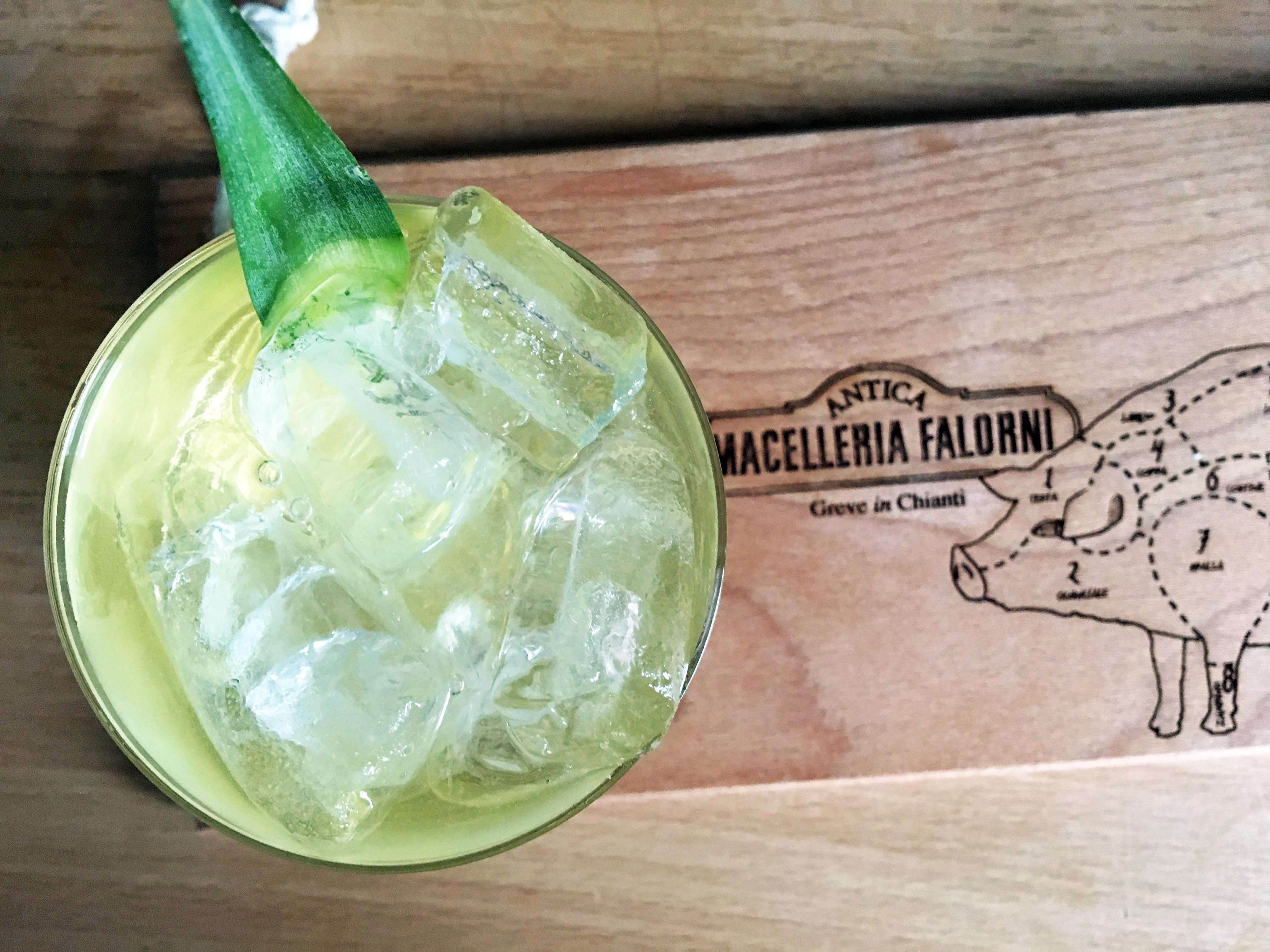
Milk punch is forever tied to my personal history here at Uproxx. Two years ago, back when I first started freelancing for the site, I was still pouring drinks at Berlin’s famous Victoria Bar. I’d generally work shifts from 7:30 pm until five or six in the morning. Around two am every night, I’d get a 30-minute break to collect my thoughts after the night’s third rush.
I’d usually be a little sweaty under my white shirt and black tie and dip into the kitchen to down three or four pale ales or porters. It was during these breaks that I’d call my new editor, Steve Bramucci, to feverishly pitch ideas to write about the next day. There was so much I wanted to cover, so many stories I was eager to write, and I knew my day’s slinging cocktails had an expiration date that was fast approaching. For me, Uproxx Life — a site I’d started writing for after Steve emailed me via my commenter profile — was my lifeline to a saner, more sober life.
I still remember one of those first calls. Steve could hear the clinking and clanging in the background and asked if I made his beloved milk punch at Victoria Bar. I told him we didn’t. Incredulously, Steve asked if I knew what it was. Equally incredulously I replied that of course, I did.
From that day on, nearly every time we talked Steve brought up clarified milk punch. He would nudge me to write about it and I, knowing exactly what it takes to make the drink, would always sort of nod along — all the while rolling my eyes as I counted cases of booze I had to carry from the cellar to restock at the end of the night.
https://www.instagram.com/p/BgrmxpKFq3k/
You see, Milk Punch — or Clarified Rum Punch or Clarified Milk Punch — is one of the hardest cocktail recipes to execute in any bar chef’s repertoire. There’s just a ton of technique involved. It takes over two days to execute. And, it’s not cheap. In fact, it’s downright outrageously expensive to make. During that first year I worked for Uproxx, Steve wanted nothing more than for me — a bartender at one of the best bars on the planet — to whip up a Milk Punch in my free time and write about it.
Time passed. Steve and I met in person and went from work friends to actual friends. And, finally, the moment for this drink came to the fore. See, I believe you never give the public what they want when they’re asking for it. You give it to them when they least expect it. You wait until you’ve built up a rapport, a foundation if you will so that they’ll appreciate it all the more.
So, this is it. Today’s the day. I’m celebrating the two years of mentorship and friendship that Steve and I have shared by writing a piece about the illustrious Clarified Milk Punch. The cocktail that Steve calls “The best on the planet.” Spoiler alert: It’s a pain in the ass. So let the love guide your process.
1. Gather the Ingredients
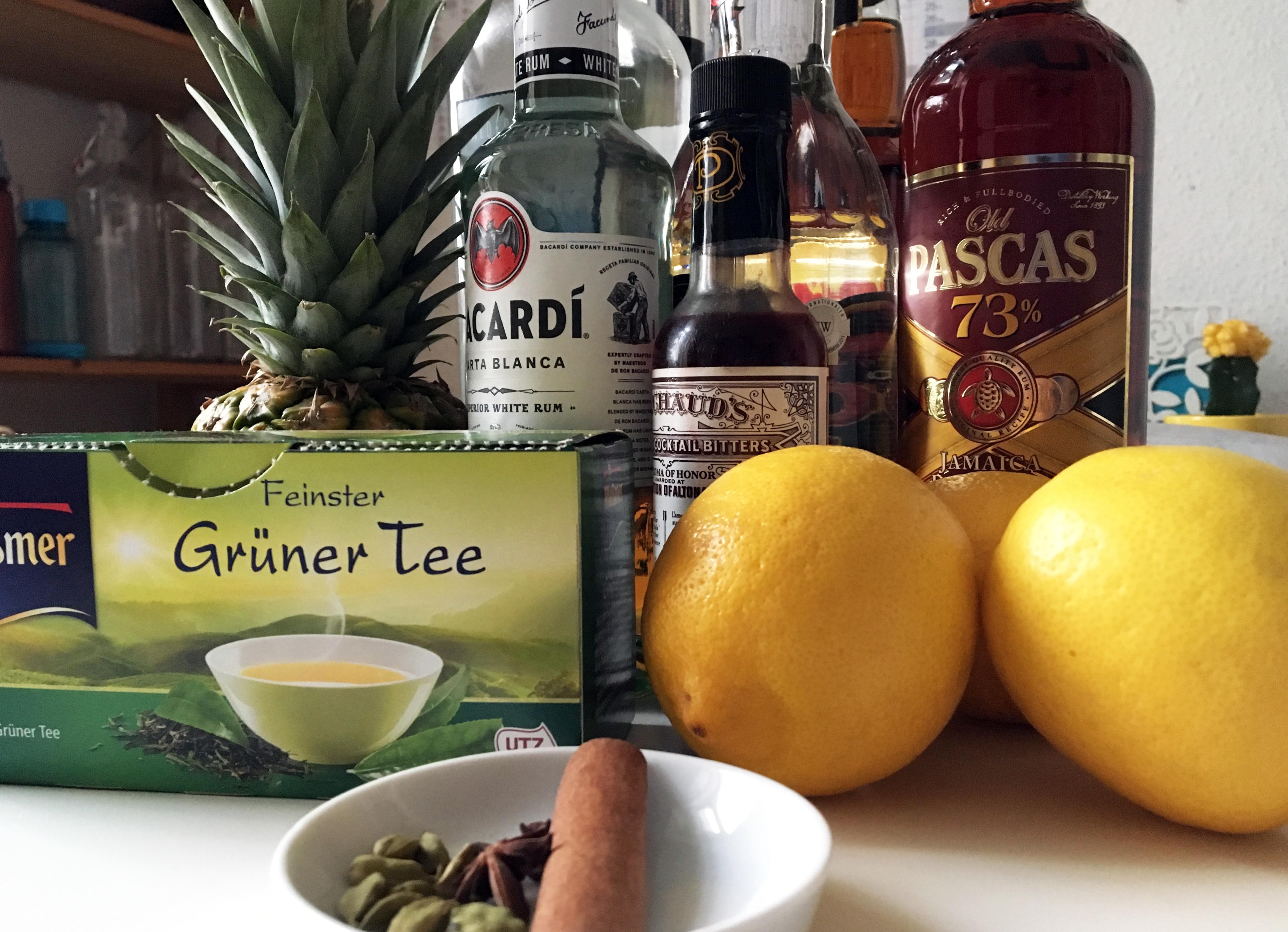
Something I’ve always sorta hated about cocktail recipes online is when really complicated recipes require crazy bottles of booze that are a) hard to find, b) really expensive, and c) only required in trace amounts. It always just feels so pretentious and inaccessible to me. It certainly holds a lot of home cocktail mixers back. And this recipe has that in spades. So… sorry in advance.
I used a 1.5l or 52 oz. canister jug for this recipe. For the first phase, it should fit everything perfectly. You’ll also need a muddler, funnel, another 52 oz. receptacle, a peeler, kitchen knife, handheld juicer, ladle, a fine-mesh strainer, and cheesecloth.
First the booze you’ll need:
- 4 oz. White Rum
- 4 oz. Overproof Rum
- 4 oz. Brandy
- 3 oz. Bourbon
- 3 oz. Cachaça
- 2 oz. Absinthe
- 0.5 oz. Peychaud’s Bitters
Naturally, the people who regularly create milk punch do it in huge batches in order to not have to go through this every day.
Other ingredients:
- 4 Lemons
- 1 small Pineapple (about the size of a softball)
- 10 Cardamom Pods
- 2 Cloves
- 1 small Cinnamon Stick
- 1 Star Anise
- 1/2 pound Granulated Sugar
- 7 oz. Boiling Water
- 4 oz. Green Tea
- 20 oz. Boiling Whole Milk
Yeah, that’s a lot of stuff. And, basically, you’re taking double shots from each bottle. So, unless you can find small flasks of some of these, you’re looking at a booze bill of over $100 easily. A decent bottle of absinthe alone will set you back $50, usually.
But look at it this way: You’ll have absinthe, brandy, bourbon, and Peychaud’s on hand. That means you can use the extra booze to master your Sazerac skills. And that right there is a win.
I’ve also supplemented the usual Arrack that most bar chef’s use in this recipe with Cachaça. My reasoning is that I find Arrack — a South and East Asian firewater — to be too broad a drink. It’s harsher and can be made from rice, coconut, or sugar cane. Cachaça, on the other hand, is a Brazilian sugar cane rum. It’s got a much brighter palate and far smoother than an Arrack. This is a rum cocktail after all.
2. Muddle and Stir
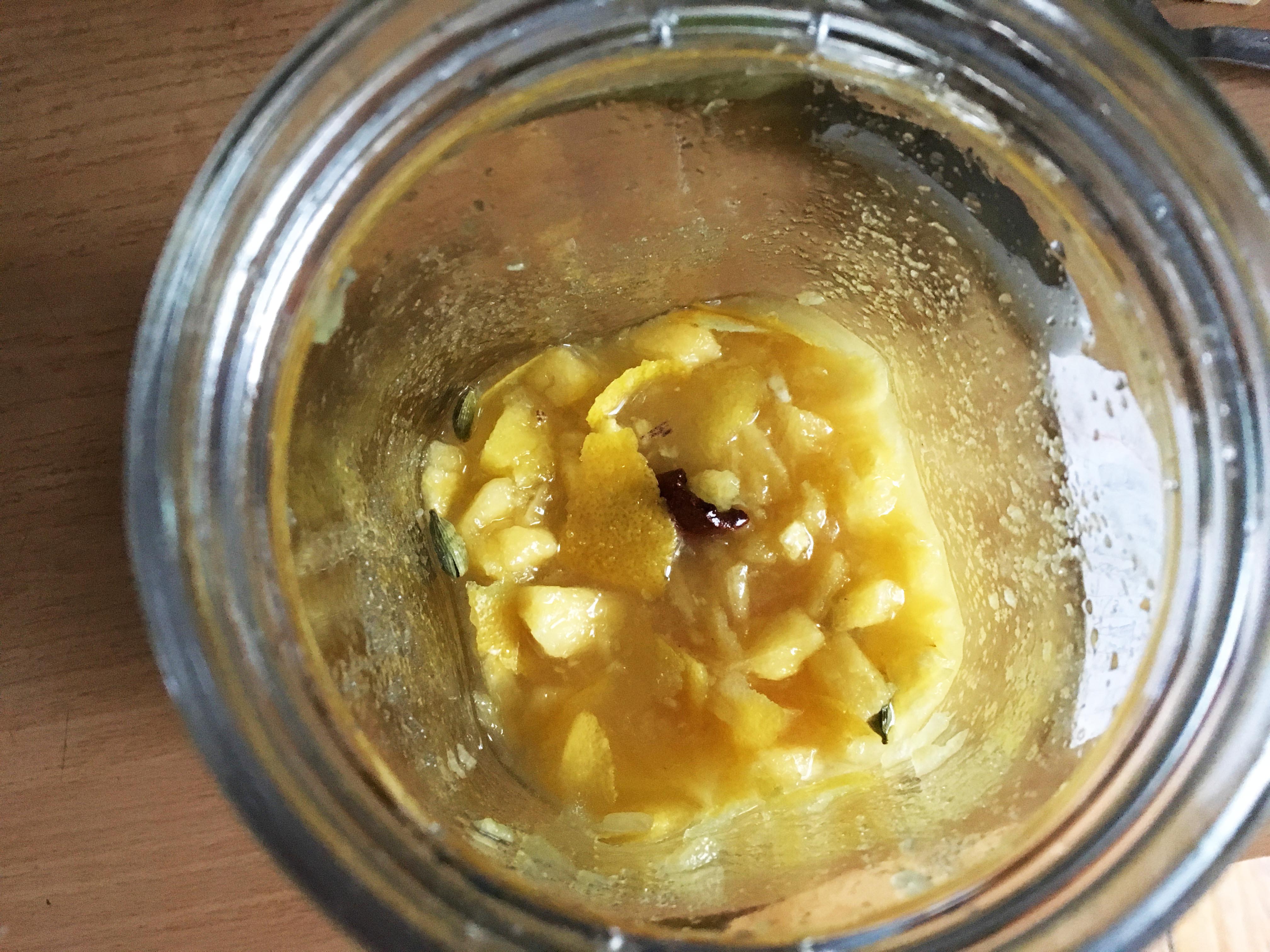
So, what you’ll want to do first is peel all the lemons into the jar. Be sure not to get too much of the pith on those rinds. You want the lemon peel and the oils, not the whites. Next, add the anise, cloves, cardamom, and cinnamon stick along with the sugar, the juice of three of the lemons, and diced pineapple. Use your muddler to gently mash the sugar, spices, and fruit together until it gets nice and juicy.
At this point, add the boiling water to make a sort of base syrup. Stir until the sugar is completely gone.
Lastly, add in all the booze and green tea and then stir until well combined. You’ll need to let the mix steep for 24-hours. I left the jar on my counter. You want to avoid the refrigerator here as the cold will slow down the acids and alcohol from doing their work.
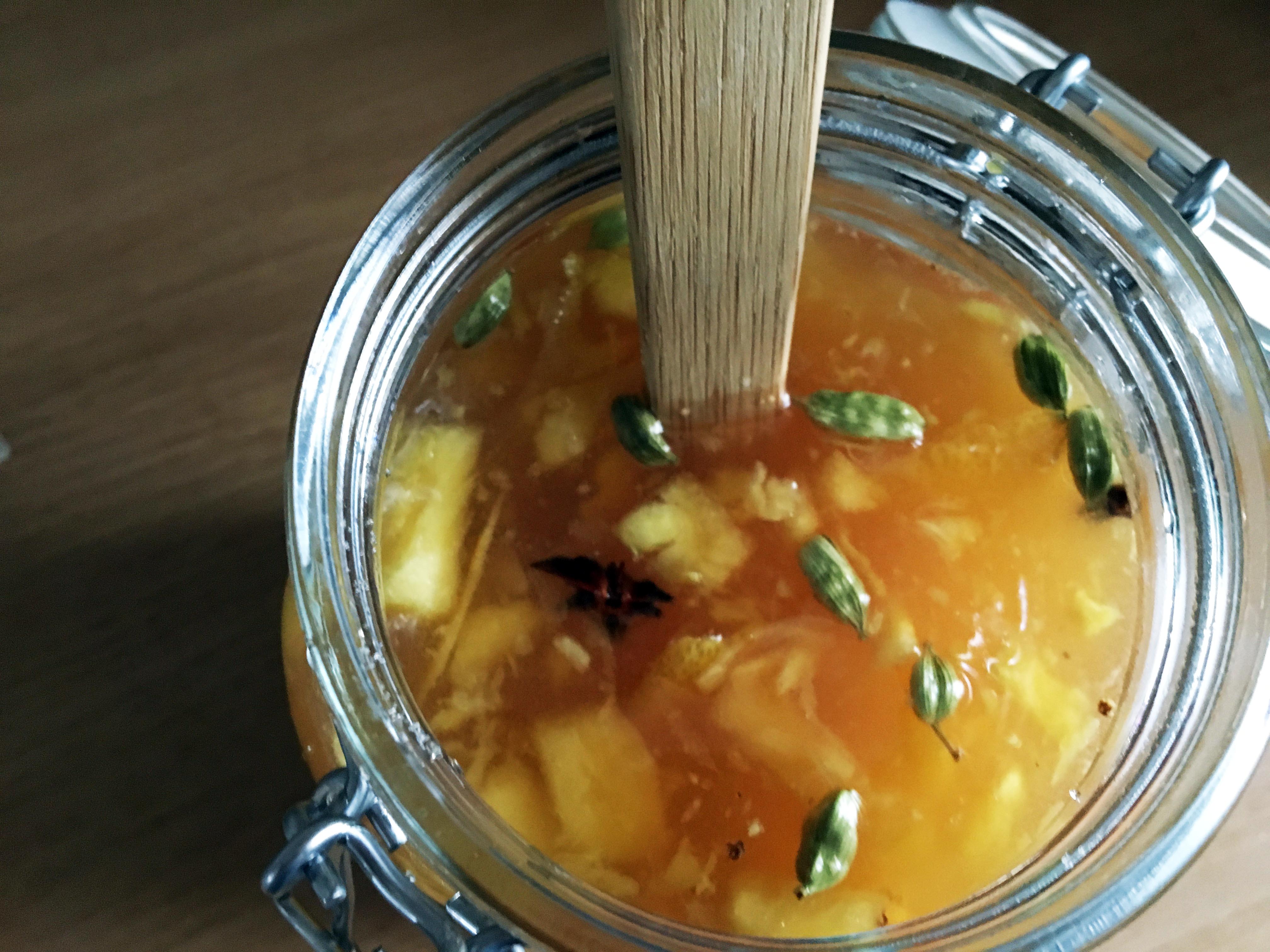
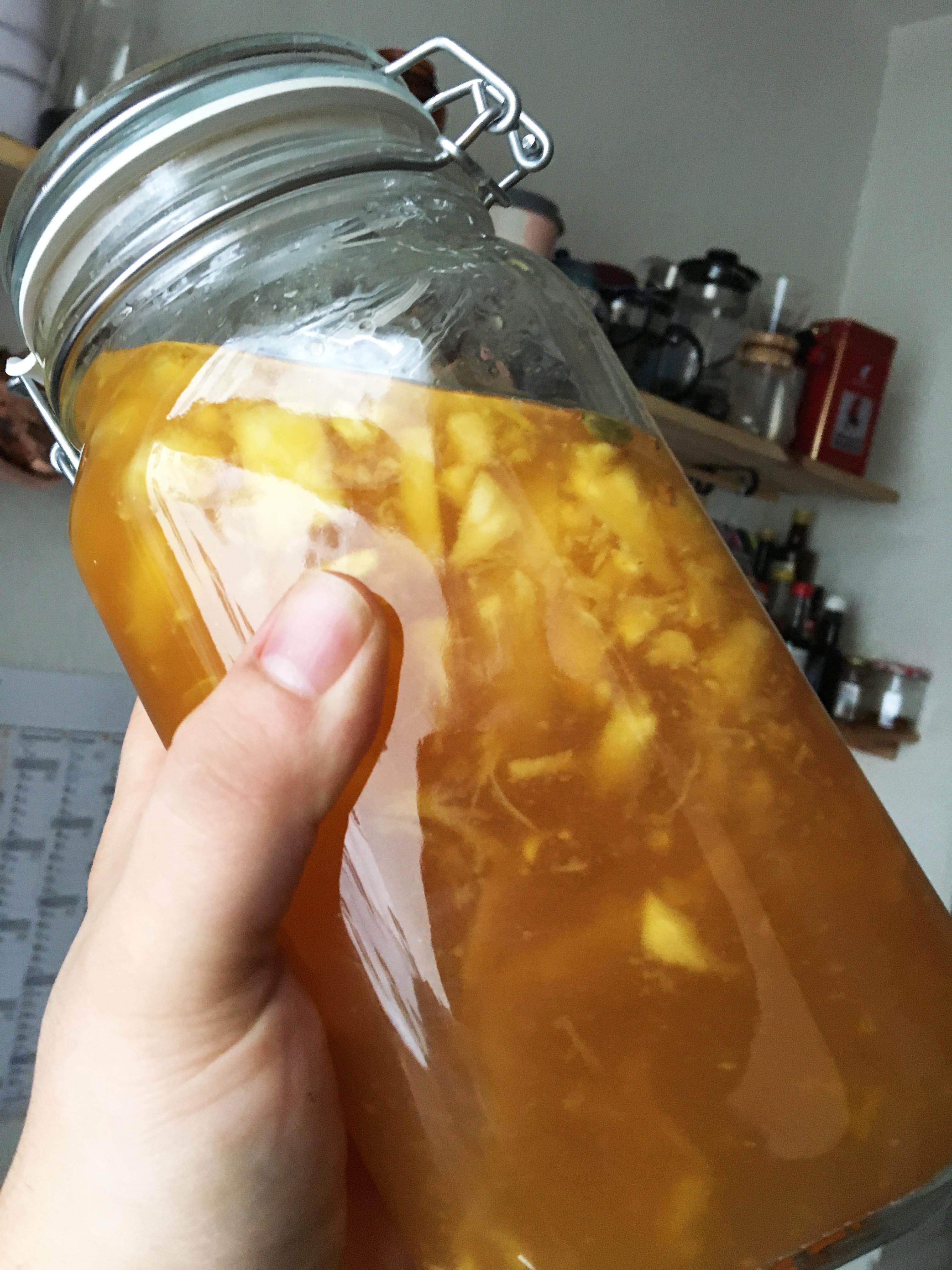
3. Strain
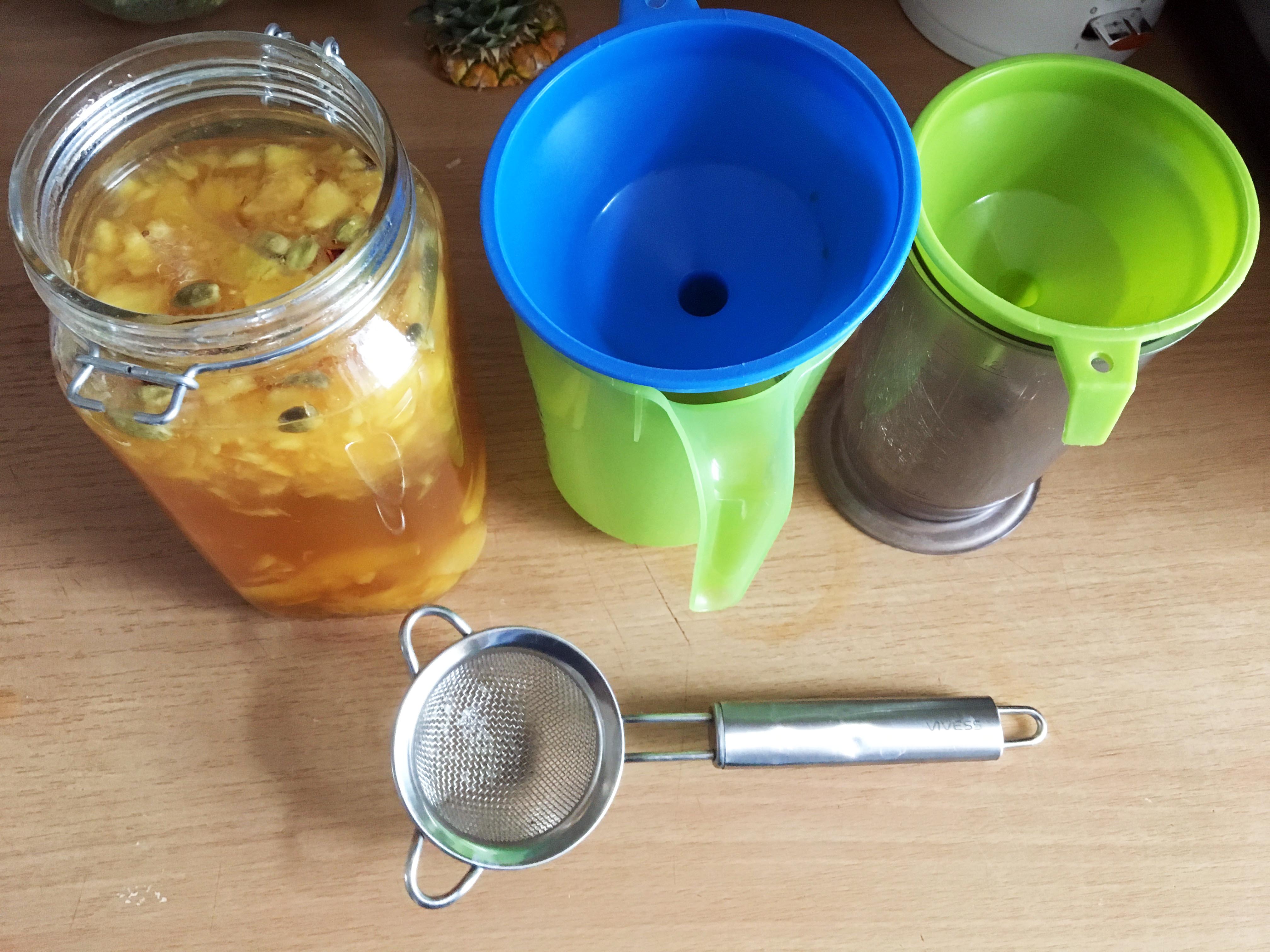
The next day, set up a straining station. I use a small fine metal sieve, funnel, and receptacle jar. I start slowly ladling the drink into the sieve. As it fills with pineapple and lemon, I use the muddler to gently squeeze as much the fluid from the pulp as possible. Don’t go too nuts here, but try and get as much out as you can. This takes a while.
Finally, you’re left with a very cloudy and very fruit-acid-forward concoction.
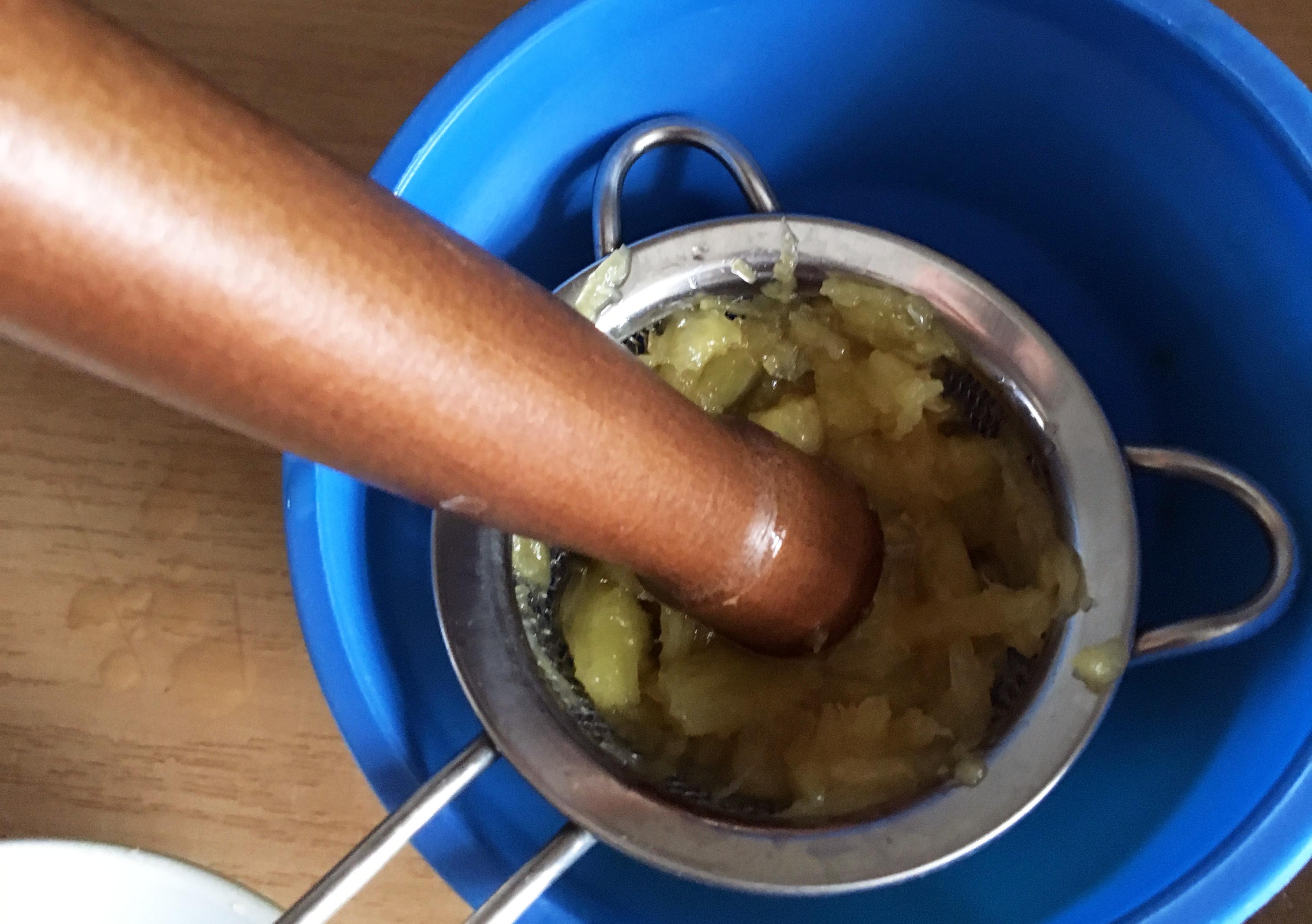
4. The Milk
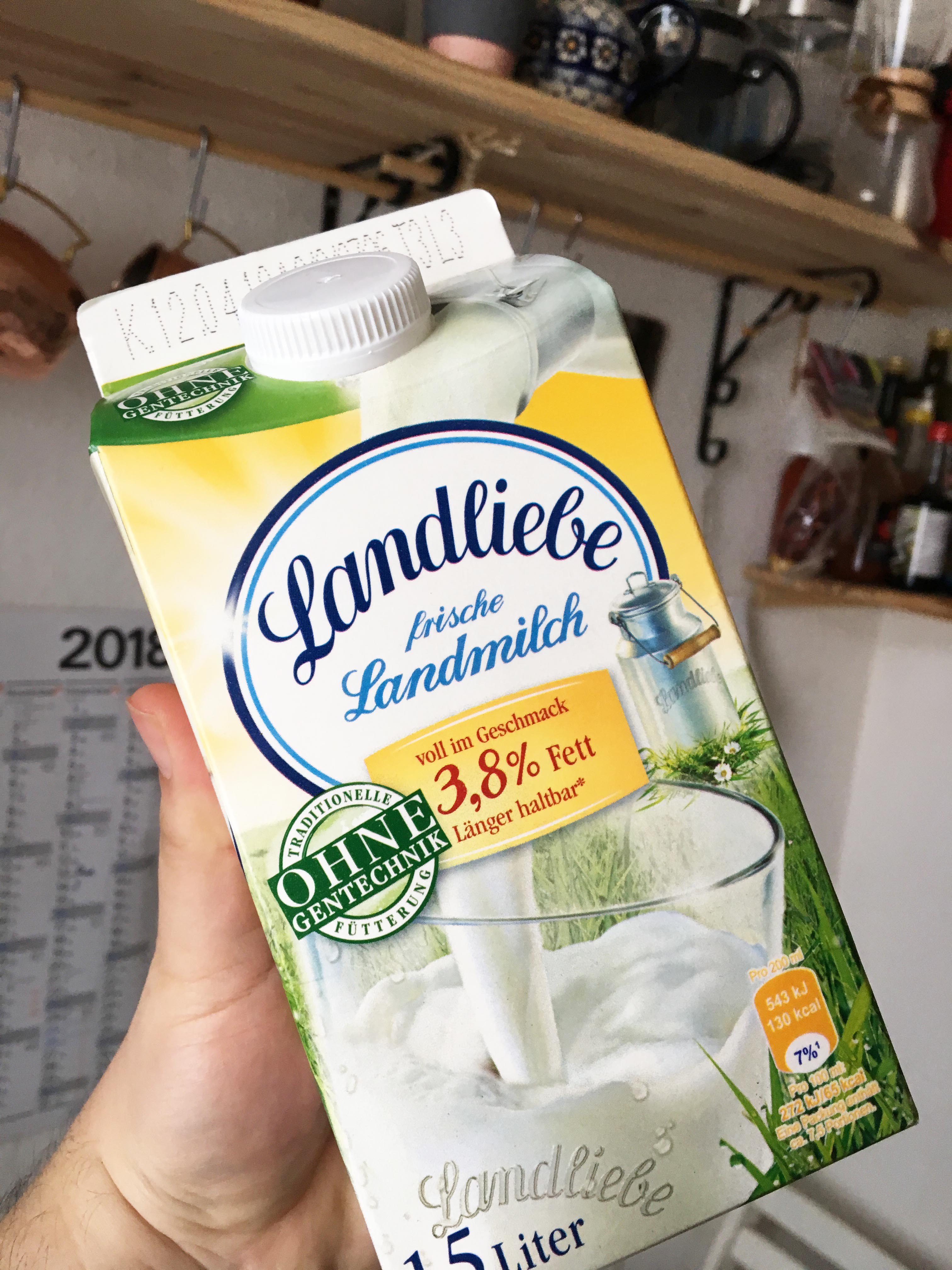
Now is the time for the counter-intuitive part. Slowly bring the milk up to a gentle boil. As soon as it’s there, pour all the rum punch into the milk. It should curdle immediately. Add the juice of the remaining lemon to really amp up the curdling process.
You should be left with a light colored cottage cheese floating in the pot. I let the mixture sit for about ten minutes. We never said being a bartender was pretty.
5. More Straining and Resting
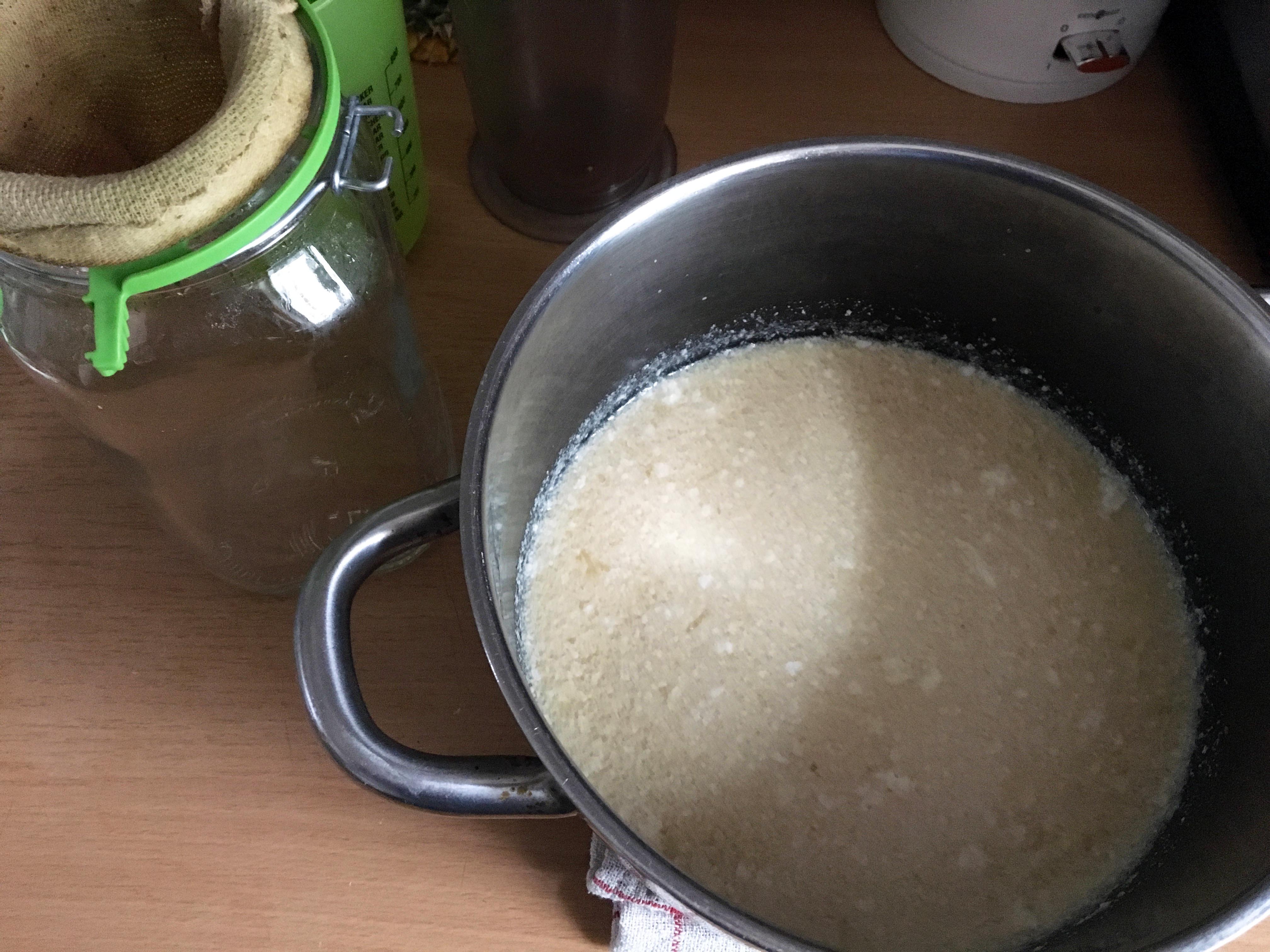
I use my sieve to scoop out the bigger milk curds. Then the straining process starts.
I set up another jar with a sieve over a ring with a cheesecloth for the first straining. Basically, you ladle in one ladle of punch at a time and let that strain through. You’ll have to clean the curd from the sieve every single time. You’ll have to clean the curd from the cheesecloth every five times or so. Otherwise, it’ll be too clogged to work.
To get through the entire pot of punch, it took me just over an hour. It 100 percent took longer the first time I did it. Now. you’ll have a light and cloudy punch.
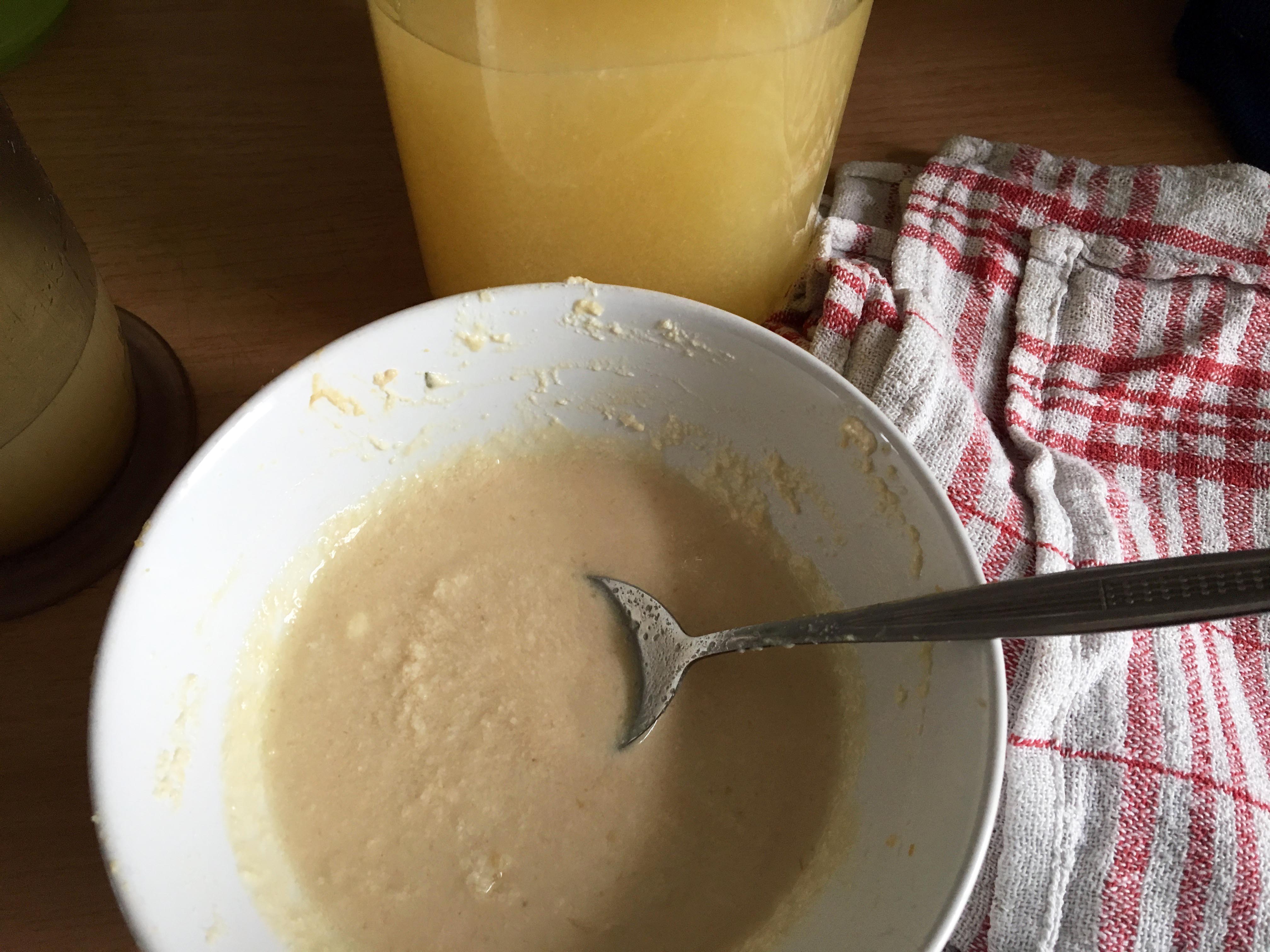
And we’re still not done.
So now, you’re going to need to clean out the cheesecloth and get ready to do a slow strain to really pull out the minute pieces of curd that are clouding up the punch.
I set up my original canister with a cheesecloth on a ring. I then pour in about four ounces of punch at a time. You have to go slow here and let it drip-drop. If you overload the cheesecloth, the punch will just push through and bring tiny bits of curd — read, cloudiness — with it. You want about a drop a second. It takes about 15 minutes for four ounces to drip through.
Four ounces at a time of 52 ounces of liquid. I repeat this step 12 more times. This basically takes three hours. I set my timer on my phone for 15-minute intervals for the refills of the cheesecloth.
It is crucial you don’t pour the punch into the cheesecloth too quickly. Pour slowly and gently every time. Once in a while, you’re going to have to very gently scoop out some clay-like curd that’s built up as well.
Once the entire punch is completely run through and clarified, it’ll have a deep yellow tinge to it. Yes, a little like piss. Put the lid back on the canister and put the whole thing in the door of your fridge overnight. This is crucial. You need to rest this drink so it mellows the acidity of the fruit and alcohol with the whey of the milk. Those things need time to sync up.
Taste test the punch before and after the overnight resting, you’ll see exactly what I’m talking about. The edges of the acidy fruit will be gone and the alcohol will be almost entirely non-existent, making the whole thing luxurious.
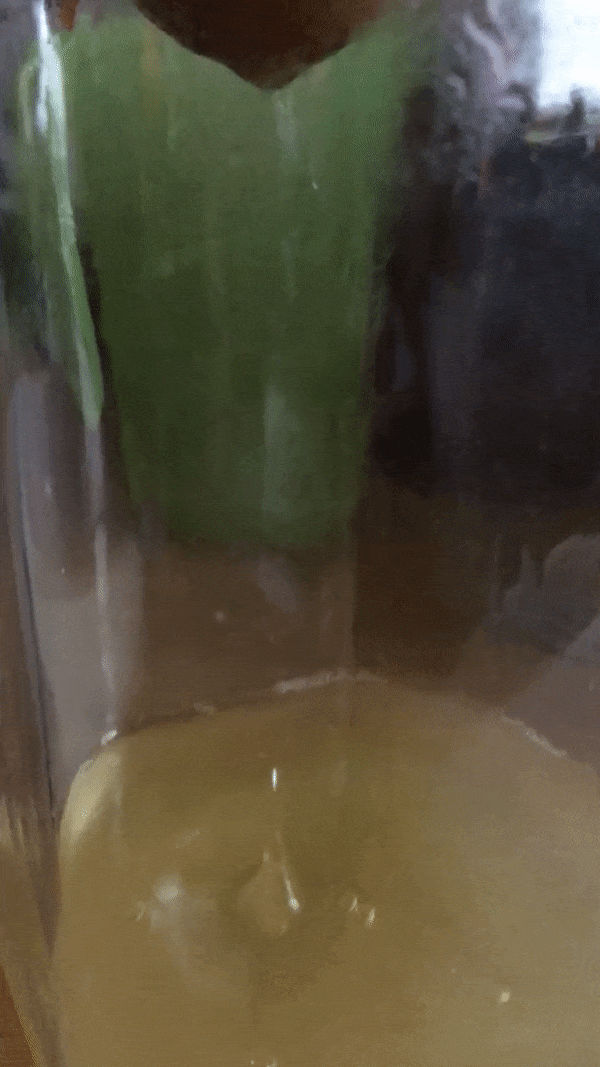
6. Serve
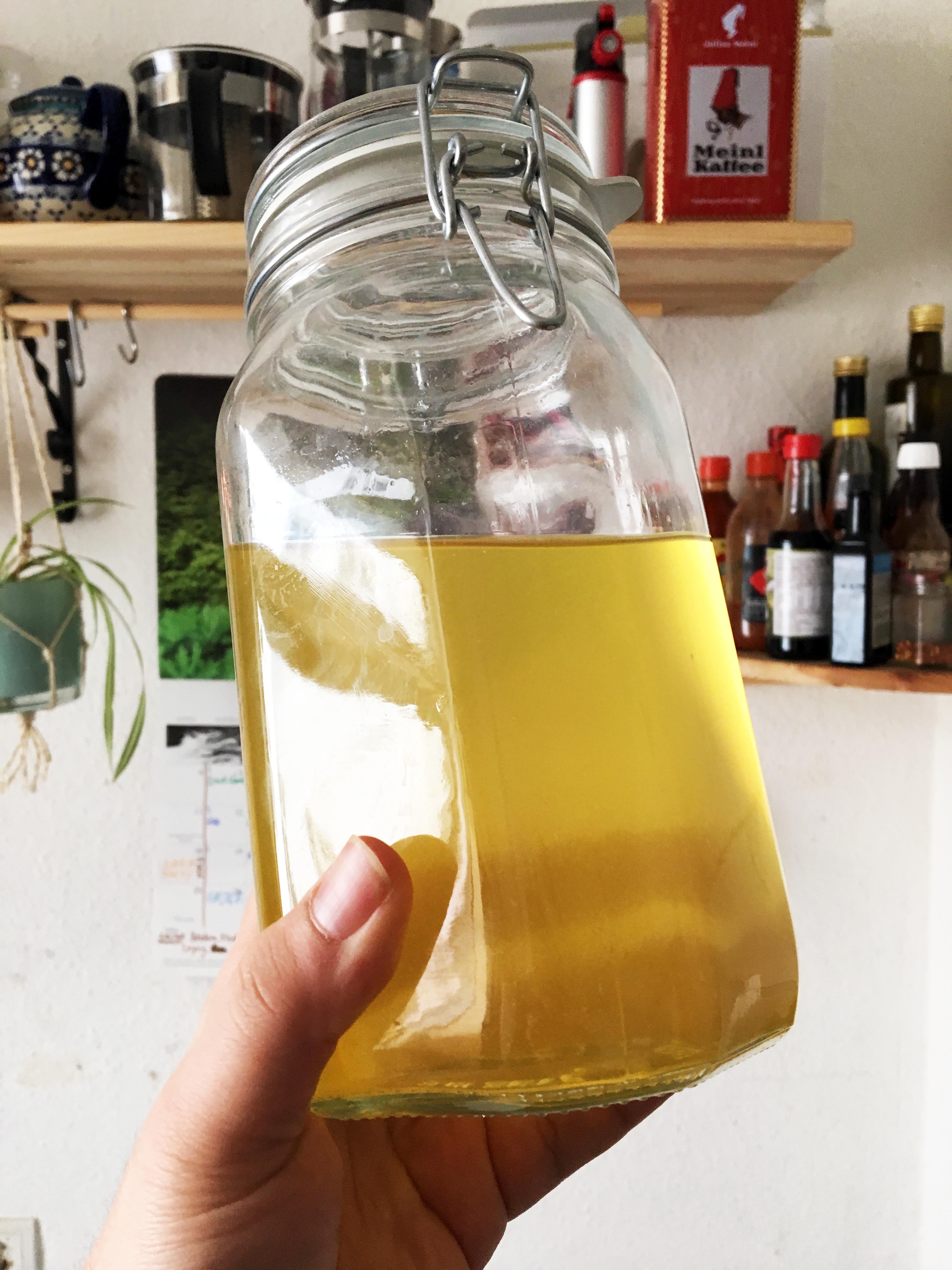
Some bartenders like to serve this one neat in a coupe or cocktail glass and I don’t begrudge them that. I do feel like it’s better suited to a rocks glass with plenty of ice to chill it down further. It’s up to you. Just remember, this is a strong drink, so a little ice will help it go a lot longer way.
I garnish mine with a leaf from the pineapple because I’m a sucker for the classic tiki look. And, yeah, Steve’s right: it’s fucking delicious. The whey has left a distinctly creamy texture that’s accented by the echoes of heavy spices and tropical fruits. It’s like a warm breeze on a sandy Oahu beach. The alcohol is almost non-existent. Like, you barely can tell this is an alcoholic drink — which is kind of a miracle given how much is in there. (Again, be careful. At Faith & Flower in LA — where the Milk Punch was named the best cocktail in the country by Esquire — they make you commit to having a DD or ubering before they let you order the stuff.)
My final thoughts on this drink are this: make it for a special occasion. Make this for your editor of two years. Or the person you love. Or your birthday. It’s not an everyday drink, at all. So treat it like the wonderfully special cocktail that it is. Be patient. Be thorough (it’s easy to screw this one up).
In the end, you don’t have to make it at home. It’s not for the faint of heart. But if you see it on a bar menu, maybe leave the bartender a little bigger tip now that you know what they went through.






